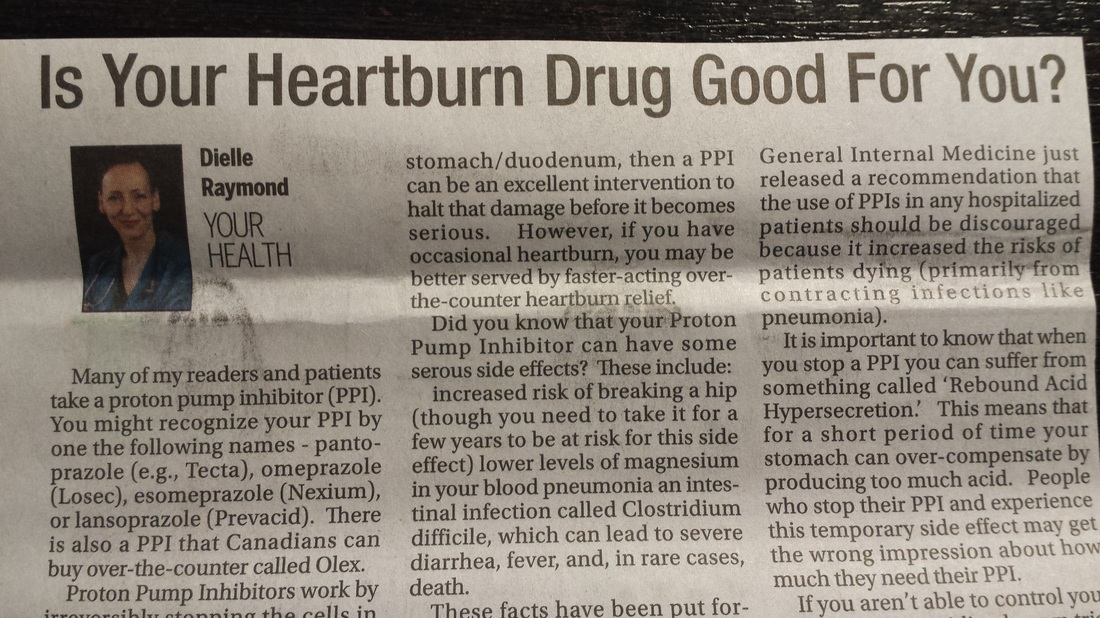|
Check out my latest article in North Bay's Community Voices (released today)! Many of my readers and patients take a proton pump inhibitor (PPI). You might recognize your PPI by one the following names - pantoprazole (e.g., Tecta), omeprazole (Losec), esomeprazole (Nexium), or lansoprazole (Prevacid). There is also a PPI that Canadians can buy over-the-counter called Olex.
Proton Pump Inhibitors work by irreversibly stopping the cells in your stomach that pump out acid (proton pumps). PPIs are frequently recommended for gastrointestinal reflux and ulcers, but are also combined with drugs that are hard on the stomach lining (such as the drug Vimovo, which is a combination of Naproxen and a PPI). It is recommended that PPI use be limited to a few weeks, although I almost always see patients that have been taking them for years. It takes several days for a PPI to reach its full effect, and a few more days for it to fully leave your system. If you have stomach acid causing damage to your esophagus or worsening an ulcer in your stomach/duodenum, then a PPI can be an excellent intervention to halt that damage before it becomes serious. However, if you have occasional heartburn, you may be better served by faster-acting over-the-counter heartburn relief. Did you know that your Proton Pump Inhibitor can have some serous side effects? These include:
Proton Pump Inhibitors have also been found to decrease the levels of vitamin B12 in your body. The lowered levels of acid in your stomach reduces your ability to fight bacteria entering your digestive tract and your ability to absorb vital nutrients, we produce that acid for a reason! The Journal of General Internal Medicine just released a recommendation that the use of PPIs in any hospitalized patients should be discouraged because it increased the risks of patients dying (primarily from contracting infections like pneumonia). It is important to know that when you stop a PPI you can suffer from something called 'Rebound Acid Hypersecretion.' This means that for a short period of time your stomach can over-compensate by producing too much acid. People who stop their PPI and experience this temporary side effect may get the wrong impression about how much they need their PPI. If you aren't able to control your heartburn by avoiding known triggers, an alternative healthcare practitioner, such as a naturopathic doctor, can work with you to treat the cause of your heartburn. Most cases of heartburn are not caused by high levels of acid, but instead by the acid being in the wrong place in your digestive tract, which can be treated. Remember to consult with your medical doctor before stopping any prescription drugs.
1 Comment
|
AuthorDr. Dielle Raymond, ND Archives
March 2020
Categories |
This website is intended for educational purposes only. There are no contents on this website that are intended to provide medical advice, diagnosis, or treatment. Copyright ©2023 Dr. Dielle Raymond, ND. All Rights Reserved.


 RSS Feed
RSS Feed